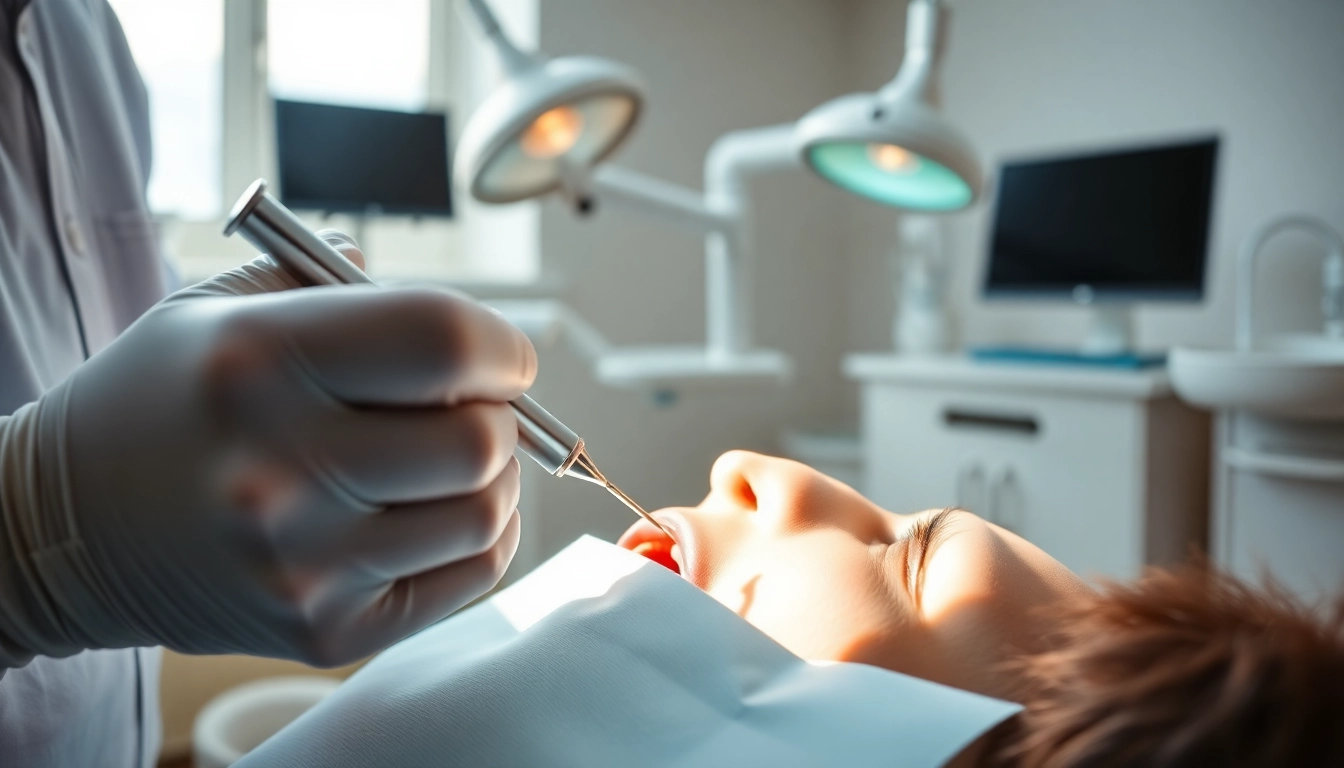The Importance of Regular Dental Checkups
Dental health is integral to overall well-being, yet many individuals often overlook the profound impact of regular dental checkups. These appointments assist in preemptively identifying issues before they can develop into more serious, potentially debilitating conditions. By prioritizing checkups, patients can maintain optimal oral health, save on future medical costs, and boost their confidence through a healthy smile.
Benefits of Routine Checkups
Routine dental checkups offer a myriad of benefits. Firstly, they allow for early detection of dental issues, such as cavities and gum disease. According to the American Dental Association, most dental problems go unnoticed until they are quite advanced; routine checkups help in intercepting these issues early. Secondly, regular cleanings during these visits remove plaque buildup, reducing the risk of cavities and gum disease. Thirdly, checkups serve as an educational opportunity; dentists will often guide patients on proper oral hygiene practices and address dietary concerns that may affect dental health.
Understanding Dental Procedures During Checkups
During a dental checkup, patients can expect several standard procedures to be performed. Firstly, a thorough examination includes a visual check of teeth, gums, and the mouth to identify areas of concern. Dentists may use X-rays to obtain clearer images of the oral structures beneath the surface, aiding in the diagnosis of issues such as impacted teeth or hidden decay. Following the examination, a dental hygienist will usually perform a cleaning, scaling away plaque and tartar to minimize oral health risks.
The Role of Prevention in Oral Health
Preventative dentistry plays a central role in maintaining dental health. The primary aim is to prevent dental problems before they arise. Regular checkups coupled with professional cleanings drastically reduce the likelihood of cavities, gum disease, and other dental issues. Most oral health professionals recommend visiting the dentist at least twice a year. This regular frequency allows both the patient and dentist to build a comprehensive picture of the patient’s oral health, establishing a proactive approach towards any potential problems.
What to Expect During a Dental Checkup
Understanding what happens during a dental checkup can help ease any apprehension patients may feel. Being informed can make the experience more pleasant and beneficial to their health.
Common Procedures and Tests Performed
The most common procedures during a dental checkup include:
- Comprehensive Oral Exam: This involves checking for signs of tooth decay, gum disease, and other abnormalities.
- X-rays: Necessary for detecting issues that are not visible, such as cavities between teeth, tooth roots, and the jawbone.
- Cleaning: Removal of plaque and tartar, polish of teeth, and fluoride application to strengthen enamel.
- Assessment of Gum Health: Dentists will check for any signs of gum disease and measure pocket depths around each tooth.
- Oral Cancer Screening: Identifying any abnormal growths and lesions which could indicate cancer development.
Questions to Ask Your Dentist
Maximizing your visit means coming prepared. Here are some important questions to consider asking during your checkup:
- What is the current condition of my teeth and gums?
- Are there any treatments I need to consider now or in the future?
- Can you recommend products for better oral care at home?
- How often should I come back for checkups?
- What changes can I make to improve my oral health?
How to Prepare for Your Visit
Preparation can enhance the benefits of your checkup significantly. Here are some tips to prepare for your dental visit:
- Formulate a Medical History: Be ready to provide an updated medical history, including medications.
- Document Your Symptoms: If you have any oral health issues, jot down specific symptoms for discussion.
- Brush and Floss: While your teeth will be professionally cleaned, it’s courteous to arrive having brushed and flossed.
- List Questions: Write down any questions or concerns you have for the dentist.
Frequency of Dental Checkups for Different Age Groups
Different age groups have unique needs when it comes to dental care and thus require varying frequencies for checkups.
Checkup Guidelines for Children
The American Academy of Pediatrics recommends that children have their first dental visit by their first birthday. This initial visit establishes a dental home and helps to prevent issues as the child grows. Following this, children should visit the dentist every six months, adjusting the frequency based on their risk of dental problems. School-age children may also benefit from fluoride treatments and sealants during their checkups to protect developing teeth.
Recommended Frequency for Adults
For adults, the general guideline is to have checkups at least once every six months. However, this can vary based on individual risk factors such as smoking, diabetes, and previous dental issues. Adults with more complex oral health needs may require more frequent visits, while those with excellent oral hygiene may be fine with annual checkups. Your dentist will provide tailored advice based on comprehensive assessments of your oral health.
Special Considerations for Seniors
Seniors often have unique dental challenges, including dry mouth, gum recession, and the effects of medications. It’s generally recommended that seniors visit the dentist every three to four months. Regular checkups can help manage these issues effectively and reduce the risk of serious complications, including infections, which can occur more readily due to certain health conditions prevalent among the elderly.
How to Choose the Right Dentist for Your Checkups
Selecting the right dental provider is crucial to ensure you receive the best care possible during checkups. Here’s how you can evaluate potential dentists.
Qualities to Look for in a Dental Provider
When choosing a dentist, consider the following qualities:
- Certification and Credentials: Confirm that your dentist is licensed and certified by the appropriate dental board.
- Experience: Investigate their experience in specific areas of dental work that you may need, such as cosmetic dentistry or oral surgery.
- Patient-Centered Approach: Look for a dentist who values patient communication and comfort, and who explains procedures clearly.
The Importance of Reviews and Referrals
Online reviews are a powerful tool in shaping your decision. Use platforms like Google, Yelp, and Healthgrades to read reviews from fellow patients. Personal referrals from friends or family members can also be invaluable. A trusted referral provides a level of assurance about the quality of care a dentist provides.
Evaluating the Clinic Environment
Pay attention to the dental clinic’s environment during your first visit. A friendly, welcoming atmosphere can make a significant difference in your experience. Check the cleanliness of the office, the professionalism of the staff, and the overall organization of the practice. Ensure that the equipment is up-to-date and that the office adheres to health and safety protocols.
Maximizing the Benefits of Your Checkups
Completing dental checkups is only one part of maintaining optimal oral health. Here are ways to derive the maximum benefit from your visits.
Post-Visit Care Tips
After a dental checkup, following your dentist’s recommendations is crucial. If a procedure was performed, stick to a diet of soft foods and avoid hot or cold items to facilitate healing. Adhere to any prescribed oral hygiene regimen, which may include special rinses or medications.
Integrating Dental Health into Your Overall Wellness
Oral health is closely linked to overall wellness. Integrating dental hygiene into your routine extends far beyond brushing and flossing. Nutrition plays a vital role—consuming a balanced diet rich in vitamins and minerals bolsters oral health. Consider regular exercise and adequate hydration as foundational elements of maintaining a healthy lifestyle, including your dental health.
Tracking Your Progress Over Time
Maintaining a personal log of dental visits, treatments, and any issues can be exceptionally beneficial. This log will help you recognize patterns over time, providing insights into your oral health that you can discuss with your dentist during checkups. You can also set goals for improving your dental habits and track your progress, which can be motivating.



